When I grew my first garden 18 years ago, I never expected to be so completely convinced that garden fresh food is superior in every way. I can confidently say growing food will change your life. Why? You’ll find the answer in the 10 reasons below.
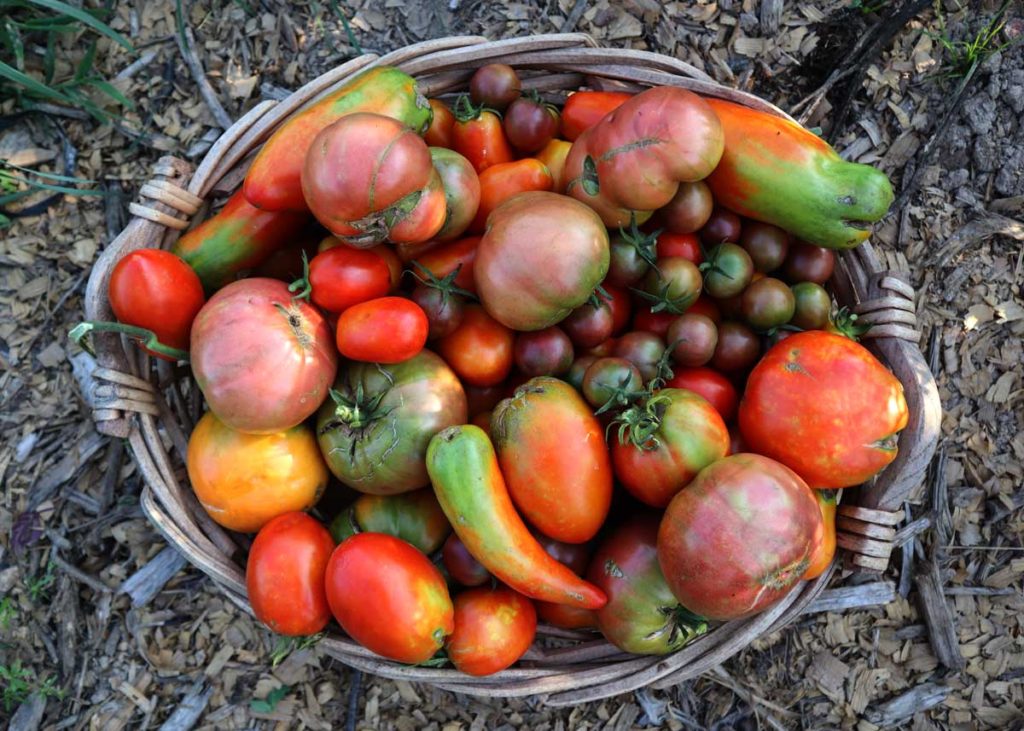
#1 Taste
I didn’t really grow up knowing or tasting homegrown food. Maybe a little here or there. My parents weren’t gardeners. But the first time I tried a strawberry from my mother-in-law’s garden I was in love. It was such a huge difference in taste and flavor the store bought varieties paled in comparison.
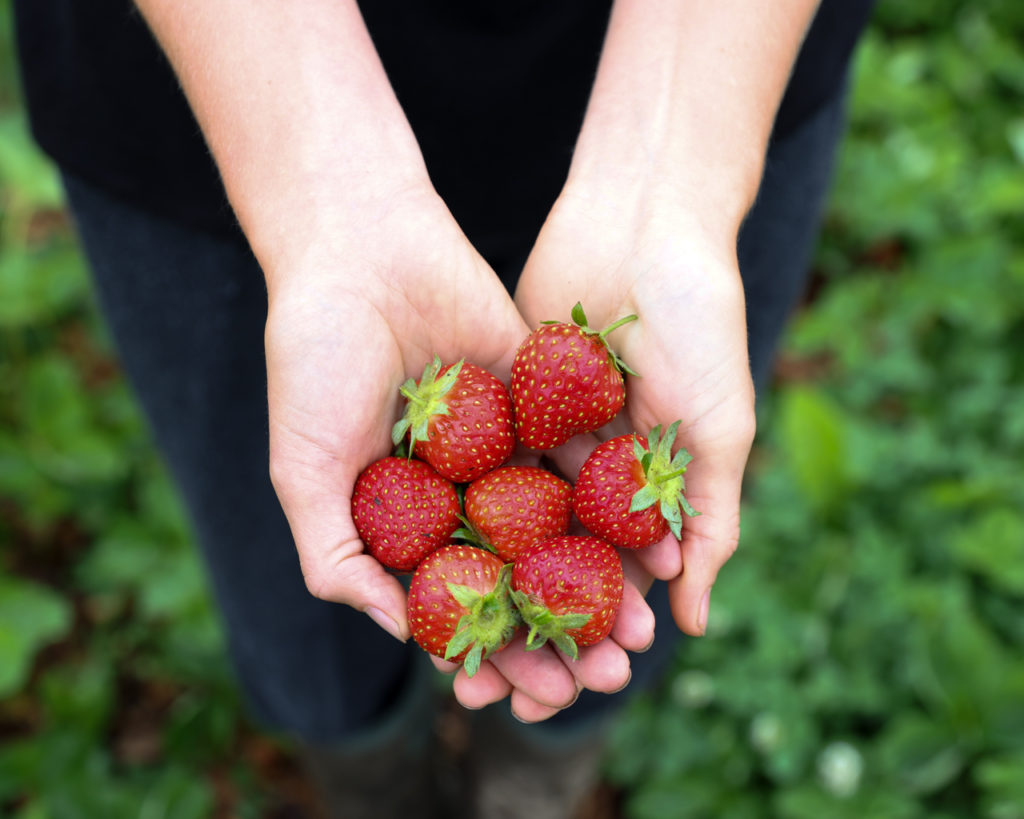
When I started my own garden, I got a feel for how good food could be. And when I made a goal to eat only homegrown vegetables for a year, I literally couldn’t go back. All the sudden, my food tasted better than any restaurant I could go to locally. Did I suddenly become a good cook? Maybe, maybe not. What did happen was the quality of the ingredients I was using was out of this world.
#2 Sustainability
Did you know the average distance your food travels to get to your plate is 1500 miles? Barbara Kingsolver author of Animal, Vegetable, Miracle puts helps bring the number into perspective. She said, “The average food item on a U.S. grocery shelf has traveled farther than most families go on their annual vacations.”
Too many Americans are accustomed to purchasing food that is out of season and shipped from far, far away. I imagine people would be outraged if they couldn’t get fresh tomatoes from their local grocery store in the dead of winter. We truly live in an age of entitlement where if we want a food out of season, we feel it must be available to us.
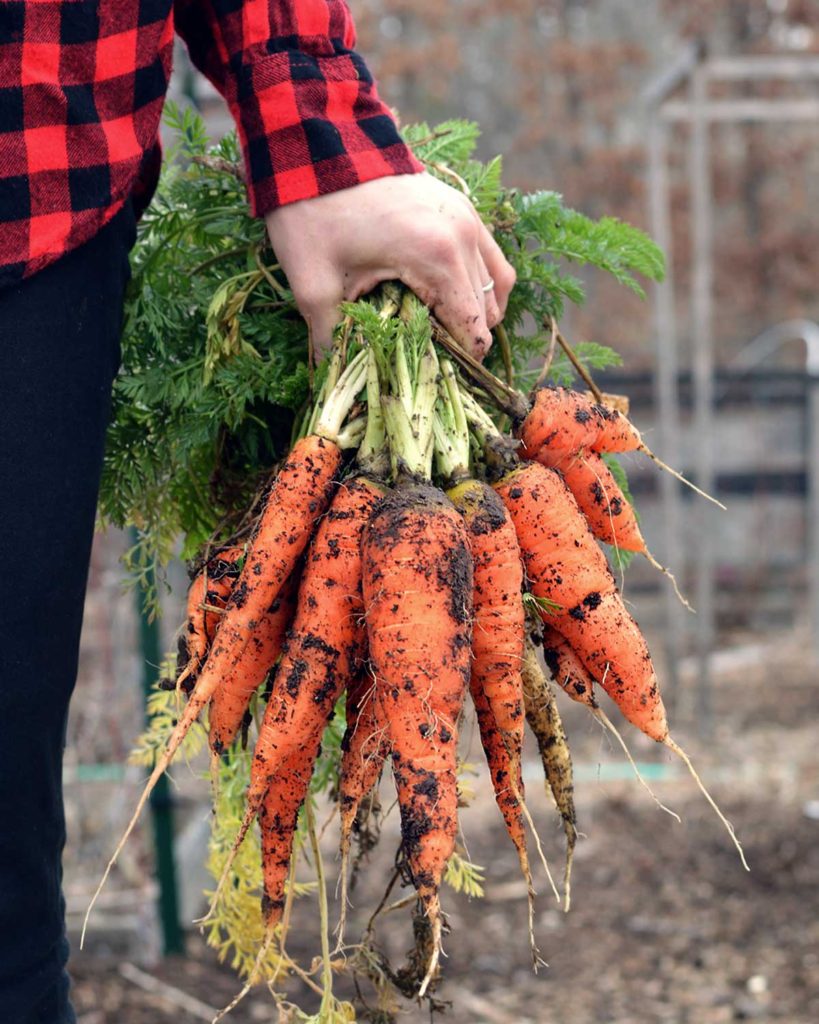
What if we turned that sense of entitlement into gratitude and appreciation for homegrown food? Can you imagine the difference it would make if everyone grew something in their backyard? Even if it was just one plant. Pretty soon, people might know what real food tastes like and not want to go back to the tomato imposters shipped from Mexico or California. It would reduce fossil fuel use and help the environment by leaps and bounds.
#3 Nutrition
Every hour that passes after food gets picked from the plant, it loses nutrients. Since food is traveling an average of 1500 miles to get to you, that requires several days of time and consequently nutrients lost.
That’s not even mentioning the nutrition loss already present because of depleted soils. In a University of Texas Study, they found declines in nutrition for 43 different vegetables and fruits when they compared data from produce in 1950 and 1999.
Let’s also consider that much of the produce at the grocery store is picked green and unripe. It is left to ripen in the trucks during transit or in ethylene chambers right before they they get shipped out from distribution centers. Picking before peak ripeness drops the nutrition and the flavor.
However, even more important than picking when ripe is choosing varieties with high nutrition levels at the outset. That brings me to my next reason you should be growing food.
#4 More Varieties
A walk through the grocery store reveals 2 varieties of carrots, 1 option for celery, 3 varieties of tomatoes, 1 option for spinach, are you seeing where I’m going with this? If you open up a seed catalog you’ll find at least 100 varieties of tomatoes, 50 varieties of carrots, 10 options for celery and much more.
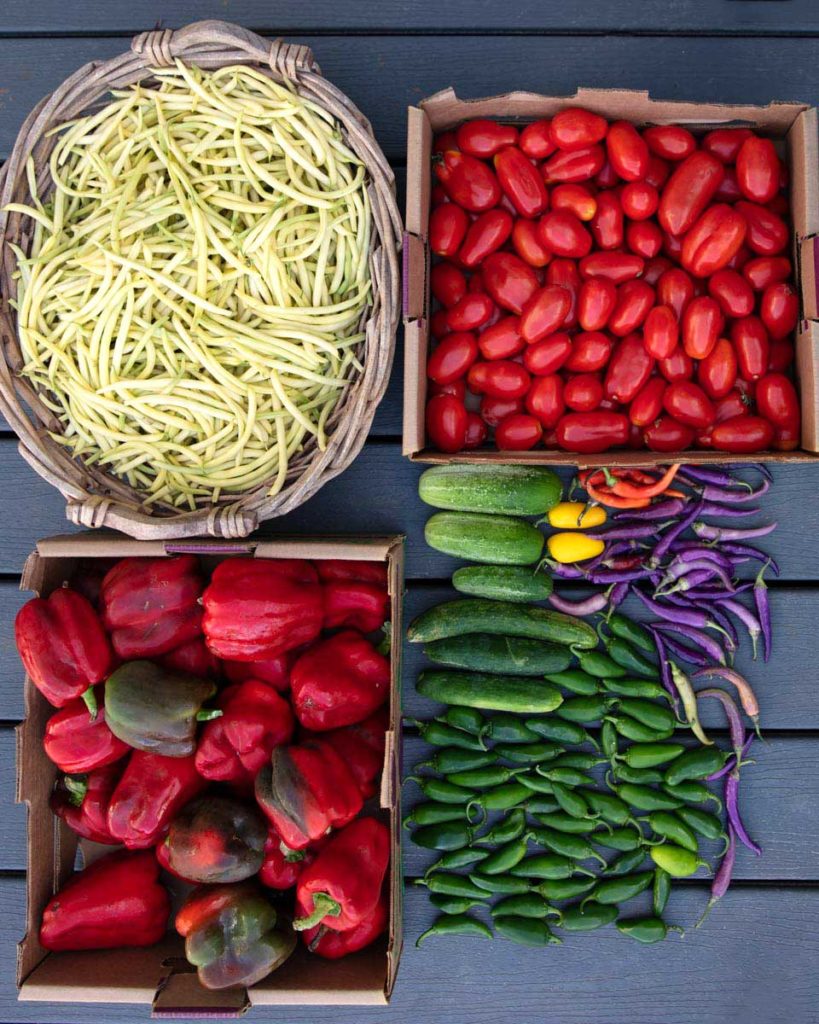
Growing your own gives you freedom. You get to choose what you like and what you don’t. You get to choose what varieties will work best for your area and your garden. And most importantly, you get to choose varieties that actually taste good.
#5 Food Security
I’m not a doom and gloom person or a prepper. However, recent world events have most of us a little more on edge. Inflation has food prices soaring but having produce in your backyard is like insurance. You don’t need to worry about food price fluctuations if it’s coming from your own yard.
Additionally, at the beginning of the conflict between Ukraine and Russia, there was talk of food shortages. Thankfully we didn’t experience that much here in the US, but it’s always a possibility. You can read my guide on how to prepare for food shortages HERE.
#6 Saving Money
Growing food can save you so much money. Sure, there are expenses involved with growing a garden. But on a regular basis we save much more than we spend. Even when we were first starting out growing food, I tallied how much we saved on food over one year and it was $6000! The full story of how we did that is HERE.
With growing food, it falls under the “a penny saved is more than a penny earned” adage. For example, we don’t pay extra expenses for our food to travel to us, we don’t pay taxes on food from my garden, and we don’t pay for someone to process our food for us, jack up the price, and then market it to us as “fat free, gluten free, carb free, etc.”
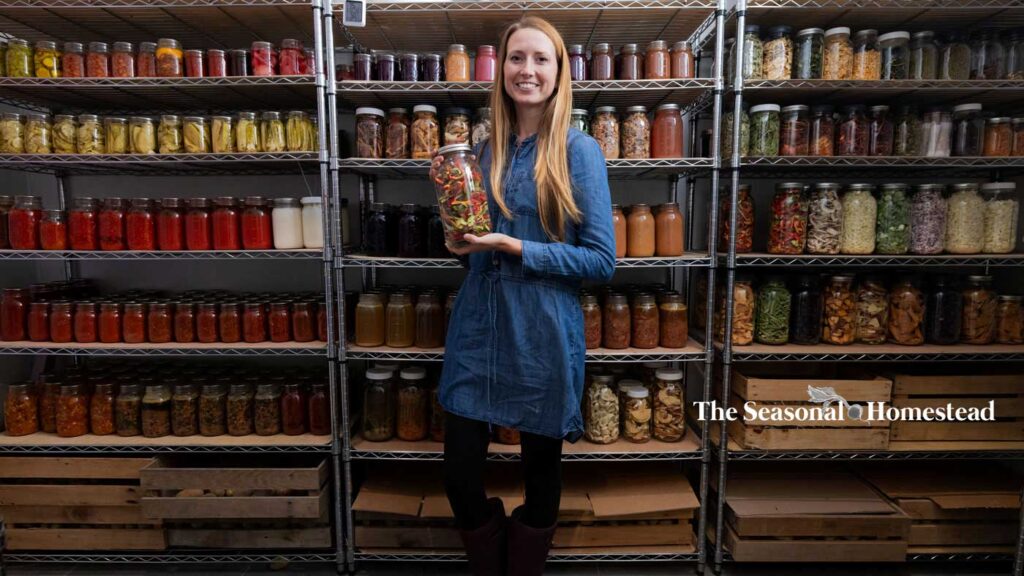
A little side note: Remember that quiet food is healthy food. If your food is screaming all the health benefits on the box, you can pretty much guarantee it’s not healthy after all.
#7 Pesticide and Fungicide Free
Someday we shall look back on this dark era of agriculture and shake our heads. How could we have ever believed that it was a good idea to grow our food with poisons?
Jane Goodall, Harvest for Hope: A Guide to Mindful Eating
Plants grown for food consumption are often grown with pesticides and herbicides. These synthetic chemicals can cause both negative environmental effects and negative human health effects. In recent years, more and more studies have been done on the side effects use of glyphosate, a widely used herbicide.
Depending on who conducts the study, the results swing from a definite carcinogen to a small amount being safe for human consumption (which I highly doubt). You can find out for yourself and read the published studies HERE.
I personally avoid ALL synthetic chemical use in my home garden. Pesticides and herbicides are NOT needed in a home garden. Additionally, I can use my own intuition, no science needed, and decide any that chemical which causes that much damage to a plant, is likely to cause damage to a human body.
You can make your own informed decisions on how you want to grow food. It’s awesome to be the boss! You choose and know exactly what goes into and on your food. No secrets.
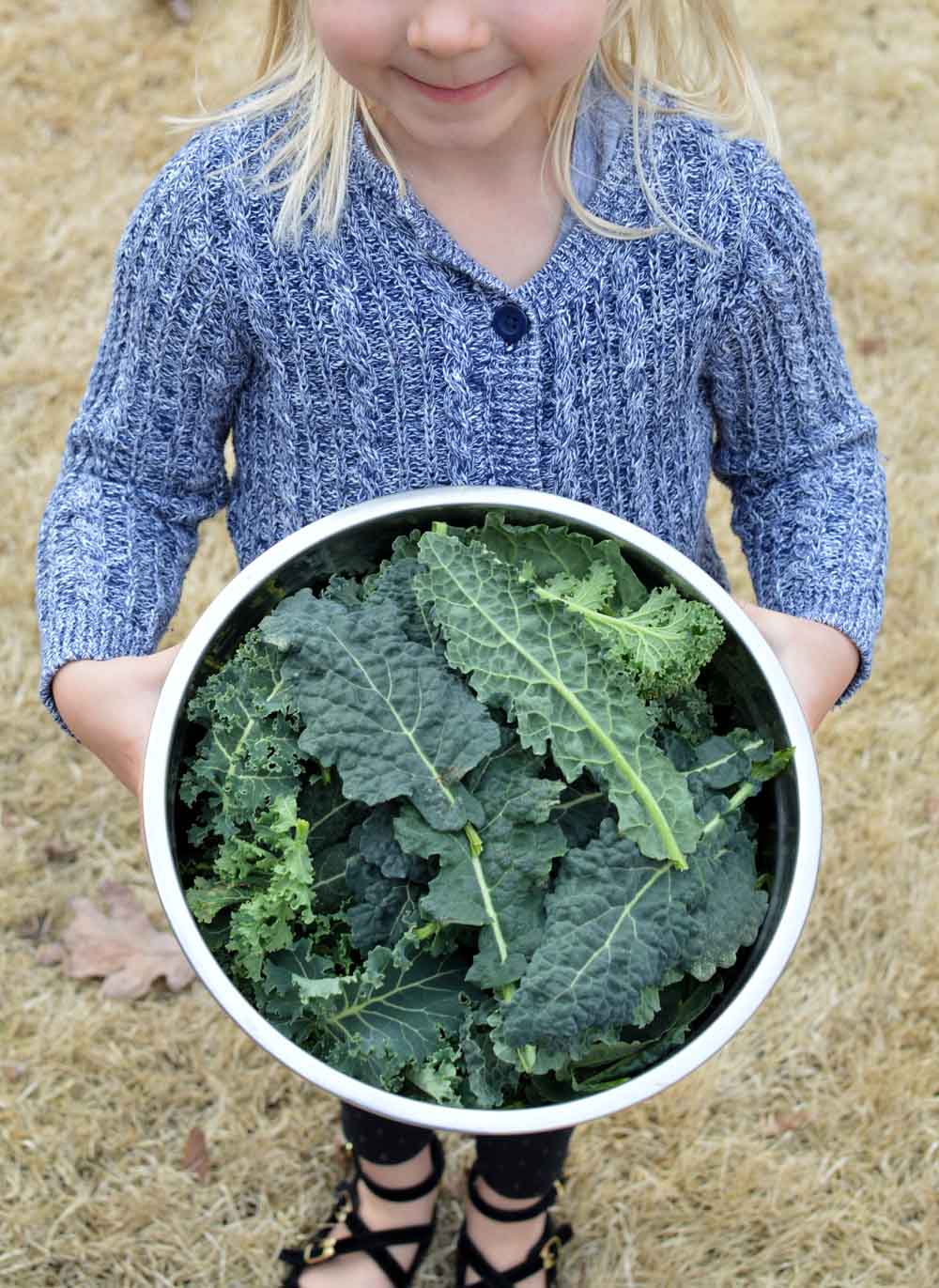
#8 Less Food Waste
In the United States, food waste is estimated at between 30-40 percent of the food supply. According to the USDA that equates to 133 billion pounds of food. 133 billion pounds!
If you take a look in the grocery store, you’ll see lots of perfect fruit. Those of us who have grown a garden before know that the majority of the food doesn’t come off the stem looking that good. And what happens to the majority of the imperfect produce? They get thrown away.
In 2014, to fight against food waste, Intermarché, the 3rd largest supermarket chain in France, started a campaign to sell imperfect fruits and vegetables at 30% off. What a great idea! I’m still waiting for the United States to catch on to that trend.
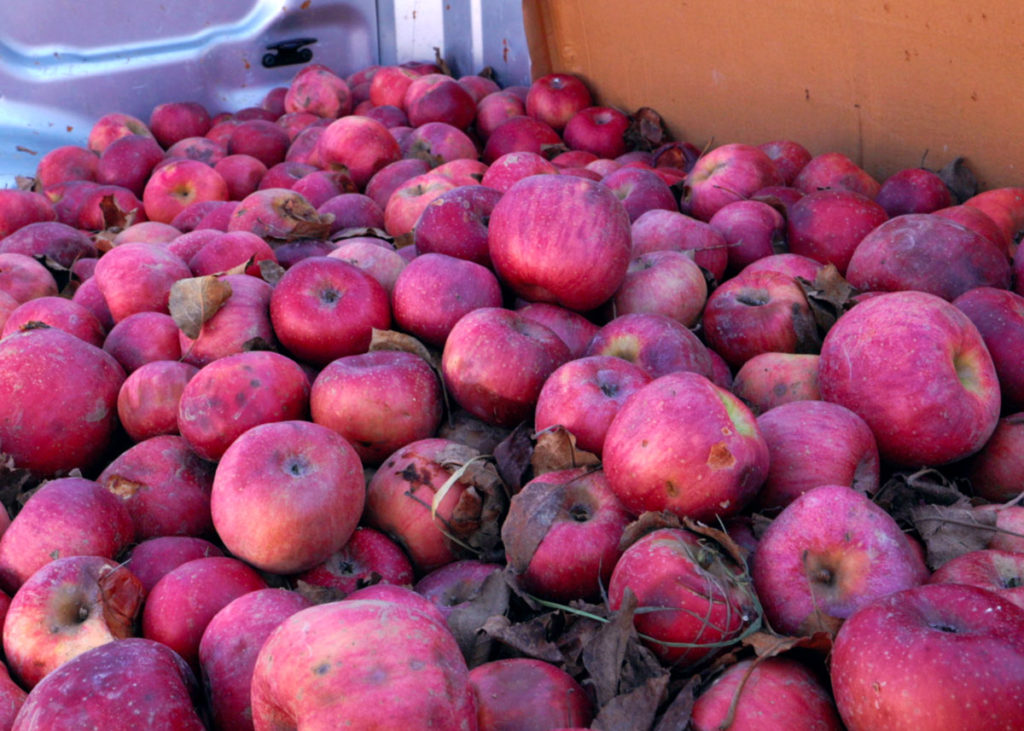
Here in the US you also still have the problem of all the produce that gets ruined and rots during transit (remember it’s an average 1500 mile trip). And that’s where the garden comes in. I have virtually no food waste from my garden. Zero. We eat imperfect food. If my produce gets to the point where it’s inedible, off it goes to feed my chickens who in turn give me eggs and meat. Anything the chickens don’t eat goes to the compost. Compost goes back into the garden to feed my plants. Everything gets eaten, reused, or recycled back into the garden.
#9 Reduced Danger of Food Contamination
New reports are popping up everywhere of food recalls increases. Did you know that instances of food recalls are up 10% from 2013? In November of 2018, romaine lettuce was recalled because of E-Coli contamination. I remember reading the article and feeling calm. I didn’t have to worry because we were eating lettuce from the low tunnels in the garden.
Just in the past 60 days there have been a number of food recalls. If you want to scare yourself into growing your own food, just click HERE.
#10 Improving Mental and Physical Health.
I have seen the benefits of improved mental and physical health first hand. When you have a garden you naturally eat healthier. You also get more exercise by working in your garden. And last but not least, you get a natural increase of dopamine and serotonin from your brain as you work in the garden.
Our family commits to growing a years worth of food from our garden. However, I realized not everyone has the time or space to do that. Even if you started a small garden it would make a big difference. The most important thing is to start somewhere and gain that knowledge and take part of the numerous benefits of the garden.
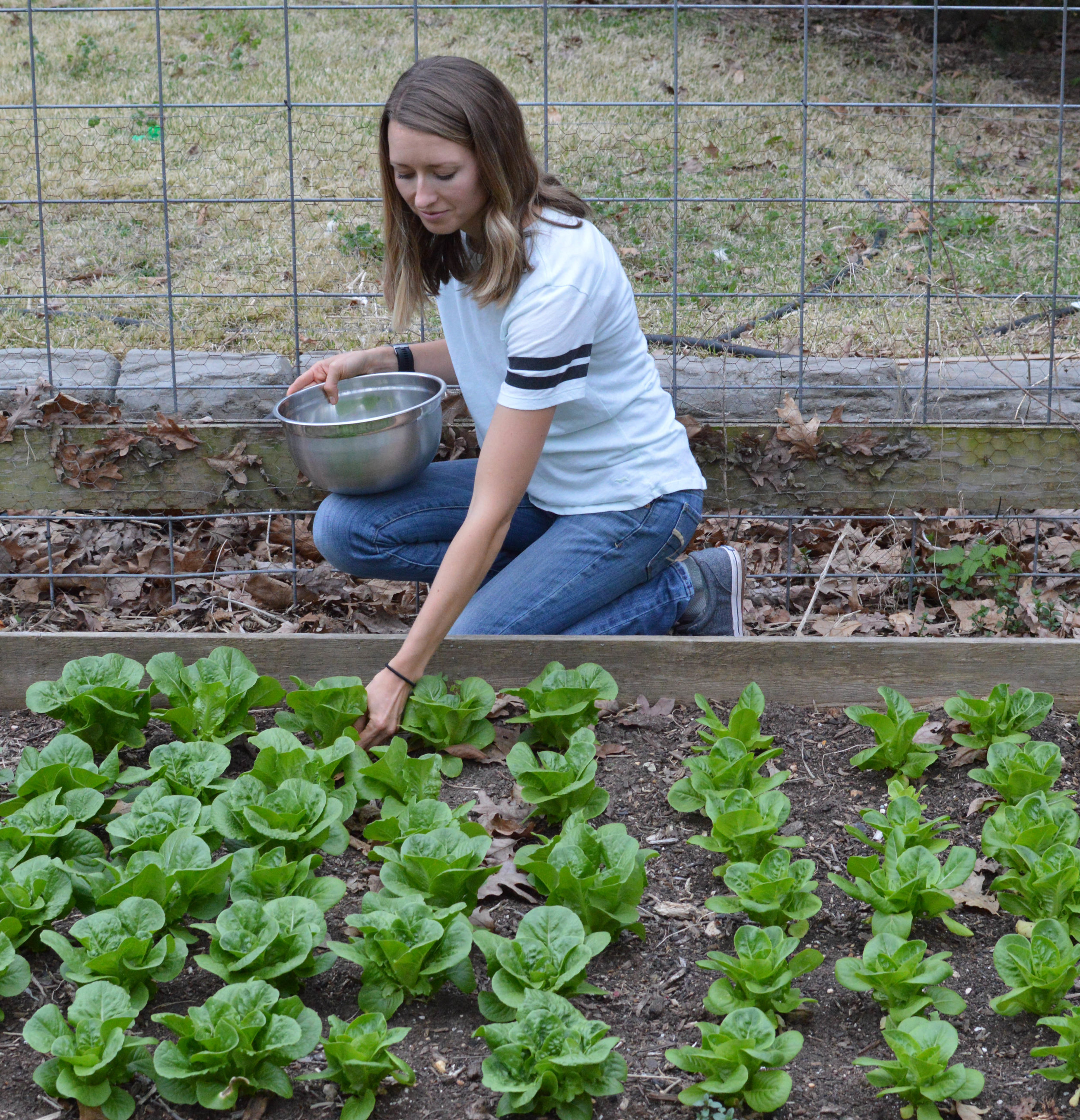
When I said early in this article that growing food can change your life, I meant it. I am living proof of that. I went from being in incredible stomach pain after each meal to completely healed. It was all from growing food.
We changed our lifestyle from being overly busy and stressed out as a family to breathing in fresh air, working with our hands, and sleeping better because of a job well done.
You can check out more of our family’s story here:
Growing food is empowering and life changing. What are you waiting for?! Time to go get started! 🙂
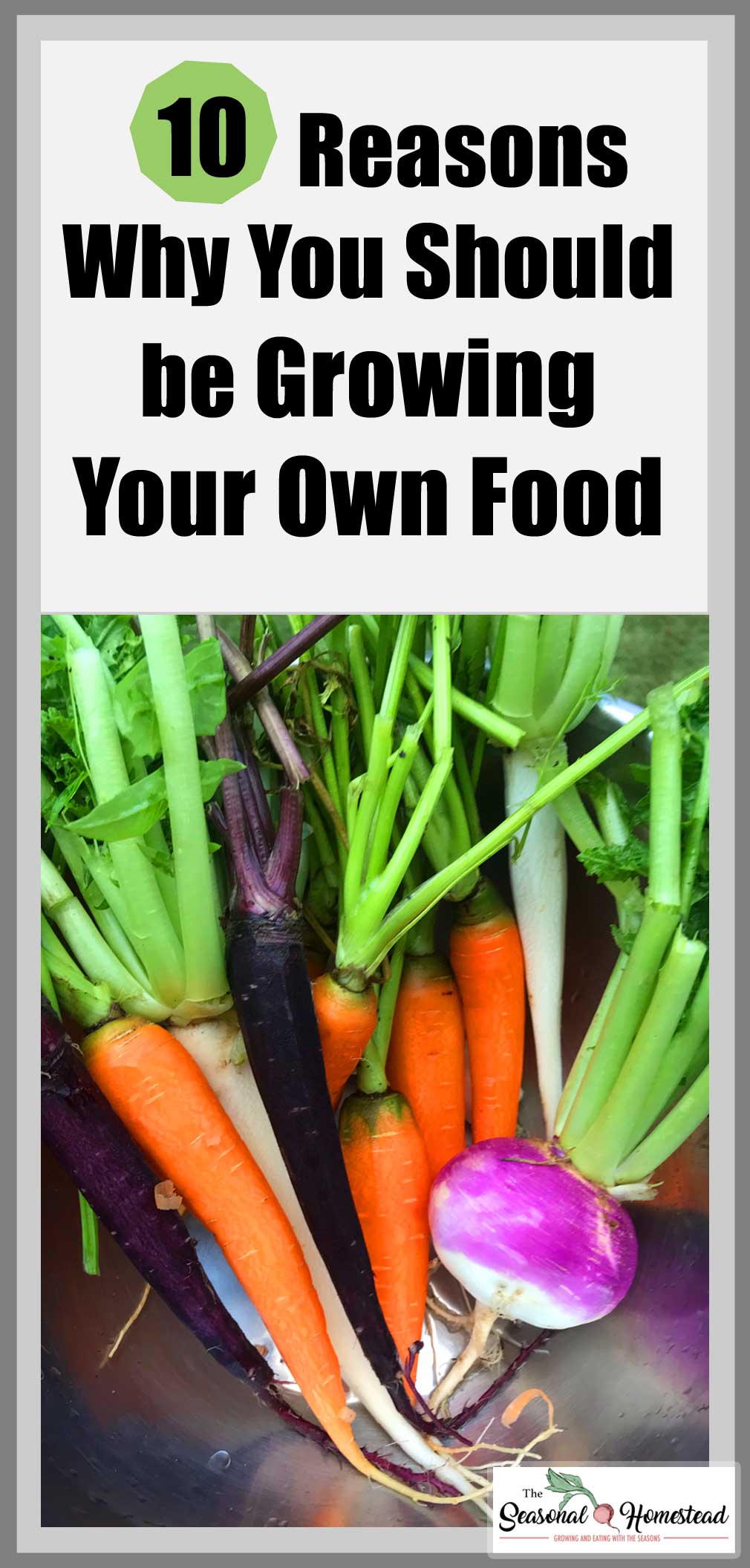

4 comments
Excellent information! I agree 100%. Would you mind if I share a link to this article in my soil health class? I’m not making any money, I teach for free. I tell people about you all the time and share your “How I healed my body…” Article, but I probably should ask for that permission, too. 😄
Oh absolutely! You can totally share with people! As long as it’s linked to my website you don’t need permission. It’s helpful to us and hopefully helpful for your students 🙂
I love this post. People are so removed from their food it is frightening. Often the link between diet and health issues just isn’t made. Bless you for sharing your own struggles and inspiring others to give it a go. You are an amazing lady Becky xxx.
Thank you! 🙂